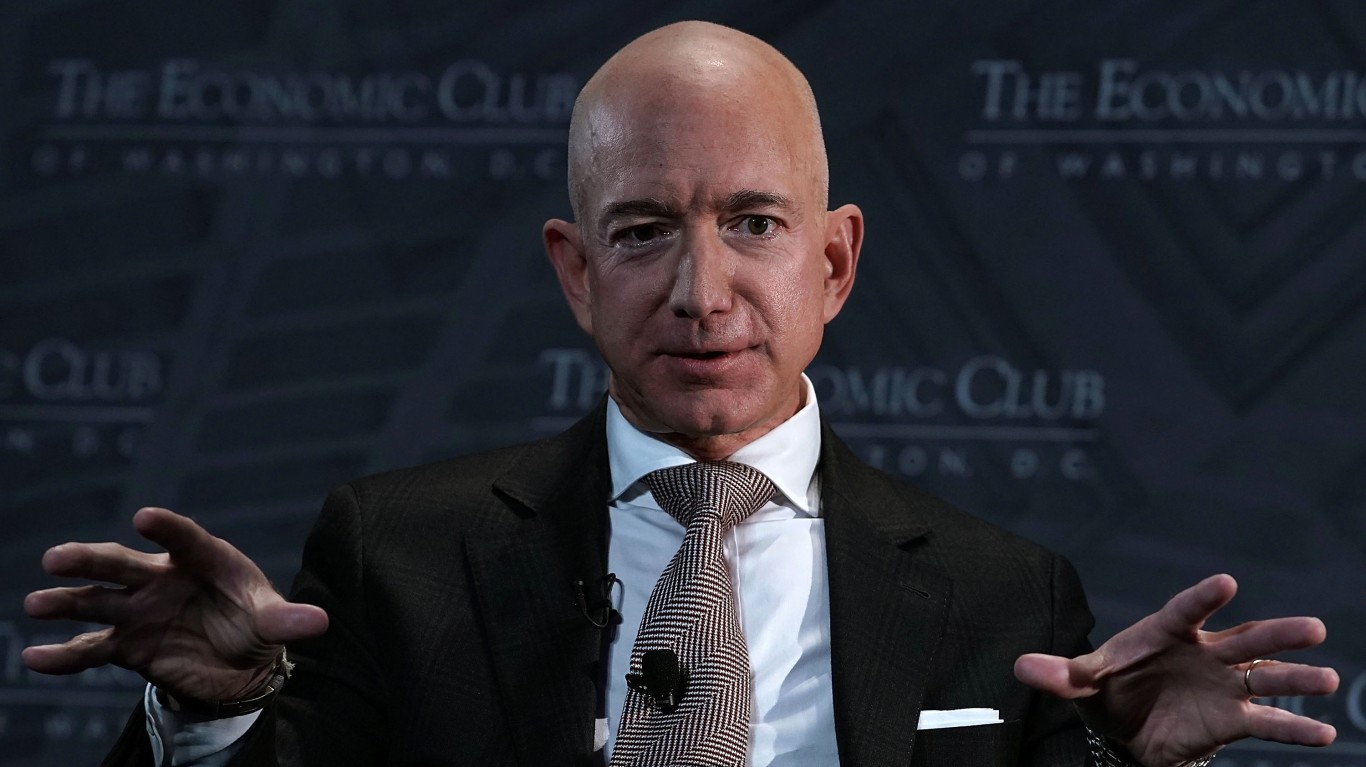
U.S. corporations are not known for their willingness to adopt a public stance on controversial political issues. On pocketbook issues, they are rarely silent, in either word or action. Just look at how many corporations now domicile all or some of their operations in foreign countries where tax rates are lower.
But if corporations are people, it is often the people in the corporations who can change a company’s mind. Last month, some 1,500 Amazon.com Inc. (NASDAQ: AMZN) employees walked out to demonstrate support for the Global Climate Strike, calling on the company to pledge to reduce its carbon footprint.
The day before the walkout, Amazon CEO Jeff Bezos announced that the company will be carbon neutral by 2040. That wasn’t enough for the employees who walked out. According to Vox/Recode, these workers wanted Amazon to do more, including reducing carbon emissions to zero, refusing to sell AWS services to the oil and gas industry, and halting donations to politicians who deny climate change.
On Thursday, the company rolled out a public website presenting Amazon’s positions on a variety of controversial political and social issues. Among the issues the company tackles are raising the federal minimum wage, committing to climate change mitigation, supporting diversity in employment, and protecting LGBTQ+ rights.
The positions the company announced included this one: “The energy industry should have access to the same technologies as other industries.” That was one item the climate change protesters wanted the company to discontinue. Amazon says it will continue to provide AWS to energy industry players to “make their legacy businesses less carbon intensive and help them accelerate development of renewable energy businesses.”
That position may be wishful thinking. By 2030, the oil industry is expected to raise production by about 7 million barrels a day.
Some employees also challenged Amazon’s face recognition software, others (primarily at Whole Foods) urged the company to stop doing business with companies that supply technology products to the U.S. Immigration and Customs Enforcement (ICE). Amazon’s response on its positions website: “Harnessing the capabilities of advanced technology such as the cloud and machine learning are important to the ongoing safety and security of the country, its citizens, our communities, and the world. We will continue to provide U.S. government and law enforcement agencies access to the most advanced technology.”
A cynic might say the company’s guiding philosophy is that a buck is a buck and, wherever there’s a big pile of them, Amazon wants to get its share. Those less cynical might say that the company’s first responsibility is to its shareholders and that making money for shareholders is what companies are supposed to do.
Amazon appears to be aiming for a middle ground, modeled somewhat on the Business Roundtable’s August statement on corporate principles, proclaiming that stakeholders, not just shareholders, have an interest in how corporations operate and behave.
Then, of course, there’s the U.S. president and his strained relationship with Amazon founder Jeff Bezos, who owns the Washington Post, a frequent critic of Trump and his administration. Having Amazon come down in favor of mitigating climate change (something that the administration may not deny outright but acts as though it’s no big deal) and a higher federal minimum wage pokes a finger in Trump’s eye. If he didn’t have other troubles right at the moment, he’d probably be tweeting about the Amazon positions website right now.
The Average American Has No Idea How Much Money You Can Make Today (Sponsor)
The last few years made people forget how much banks and CD’s can pay. Meanwhile, interest rates have spiked and many can afford to pay you much more, but most are keeping yields low and hoping you won’t notice.
But there is good news. To win qualified customers, some accounts are paying almost 10x the national average! That’s an incredible way to keep your money safe and earn more at the same time. Our top pick for high yield savings accounts includes other benefits as well. You can earn up to 3.80% with a Checking & Savings Account today Sign up and get up to $300 with direct deposit. No account fees. FDIC Insured.
Click here to see how much more you could be earning on your savings today. It takes just a few minutes to open an account to make your money work for you.
Our top pick for high yield savings accounts includes other benefits as well. You can earn up to 4.00% with a Checking & Savings Account from Sofi. Sign up and get up to $300 with direct deposit. No account fees. FDIC Insured.
Thank you for reading! Have some feedback for us?
Contact the 24/7 Wall St. editorial team.




